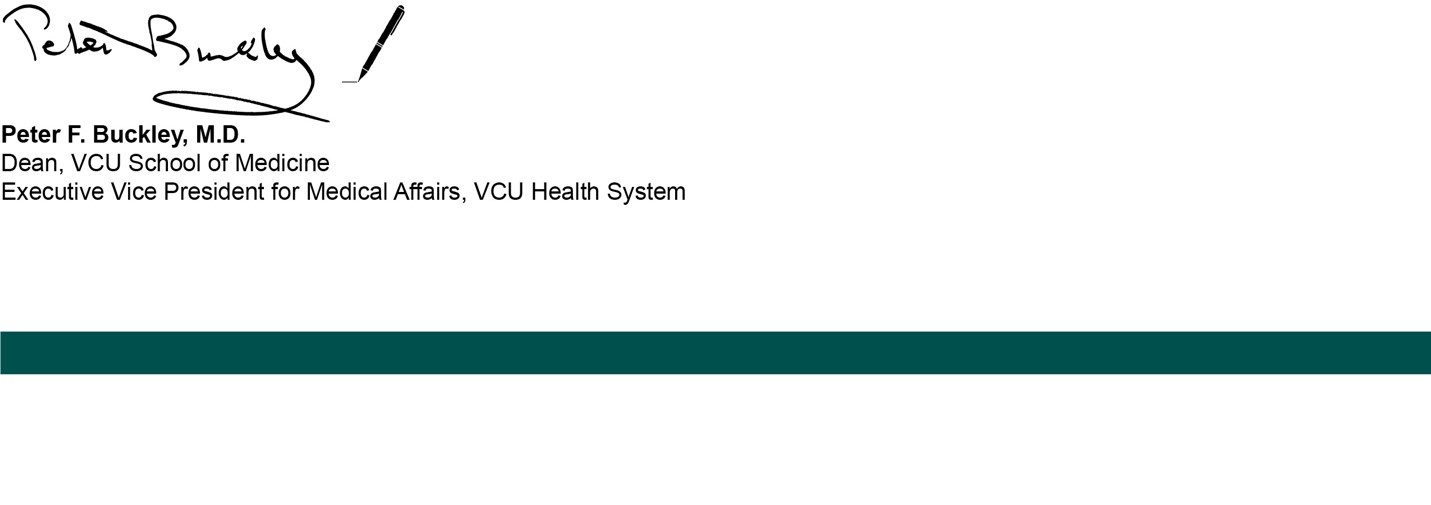Dear Colleagues-Friends,
With all the uncertainty, upheaval and uneasiness we are experiencing in the midst of a global pandemic, social unrest and inequalities, and a closely contested election, it is important to find moments of gratitude and, more importantly, to consider our place in the world and how we can make a difference. We all have the capacity – and the responsibility – to be a positive influence in our communities, and there are several noteworthy examples of this that I would like to share with you.
‘Transformational Education’ in Developing Nations
Earlier this fall, I had the privilege of attending and giving opening remarks at the VCU ACCESS Symposium 2020, hosted jointly by our School of Medicine and the VCU Program for Global Surgery.
ACCESS, which stands for Acute Care and System Strengthening, is a longitudinal academic program focused on health care delivery in low resource settings for acute conditions related to emergency medical, surgical, anesthetic and obstetric care. This year’s symposium – which was held virtually due to the ongoing pandemic – drew more than 150 medical students, residents, attendings, nurses and others from the United States, Kenya, Ecuador, Rwanda, Morocco, Nepal, New Zealand and other countries around the globe to discuss “overcoming limits in global health.”
During his inspirational keynote presentation, Dr. Glenn Geelhoed, professor of international medical education at George Washington University and founder of the non-profit organization Mission to Heal, discussed the innovative model he has implemented across Sub-Saharan Africa, Mongolia and Ecuador to empower resource-limited communities through mentoring, monitoring and providing continuing education to health care providers.
The goal of Mission to Heal is not to perform a certain number of procedures in each locale but instead to provide opportunities for reciprocal teaching and learning between local and expatriate physicians that results in “transformative education” for all those involved.
“‘I will never be the same’ is the statement that is made uniformly” following these missions, Dr. Geelhoed told attendees. “Because now we have confronted a problem … across these boundaries and barriers that we thought were insurmountable.”
According to Dr. Geelhoed, this model helps ensure that knowledge, expertise and the benefits they bring “go on beyond us” and continue to serve the community long after Mission to Heal leaves.
‘Paying It Forward’ Closer to Home
The ripple effect of mentorship and education to overcome systematic – and seemingly insurmountable – limitations can be seen closer to home in our own communities as well. Two of our School of Medicine colleagues recently shared how overcoming the obstacles they faced as they became physicians inspired them to help the next generation strive to reach their dreams.
Dr. Stephanie Crewe, chief of the Division of Adolescent Medicine, grew up in Richmond and was determined that expectations of her based on her zip code would not dictate her future. In this interview with VCU Health, she shares how she forged her own path to becoming a doctor and returned home following her medical training to help children in similar situations.
Priscilla Mpasi, M'14, a pediatrician who was recognized earlier this month during VCU Alumni's 10 Under 10 awards, sees herself as a servant-leader, responsible for carrying on a legacy. When she was in Richmond, she met Norma Goodwin, M’61, one of the first African Americans to attend medical school on the MCV Campus. “Hearing her experiences and challenges – and her success – was one of the most powerful experiences in my life,” Dr. Mpasi said. “I’ve carried that with me, and it just makes me want to pay it forward for those who are coming behind me.” More about Dr. Mpasi’s outstanding commitment to her patients and her advocacy is posted on our website.
A Legacy of Learning
Like Dr. Geelhoed and Dr. Goodwin, it is up to all of us in our roles as educators, researchers and clinicians to create a legacy for our learners, providing them with the knowledge, tools, fortitude and belief to succeed despite the obstacles.
We are most grateful to Dr. Edgar Rodas and our ACCESS students for organizing such a superb learning opportunity for those joining us virtually from Richmond and around the world. I also would like to express my appreciation for all our faculty and staff who serve as mentors and change agents within our communities, both at home and abroad. Thank you for your leadership.
With gratitude,


